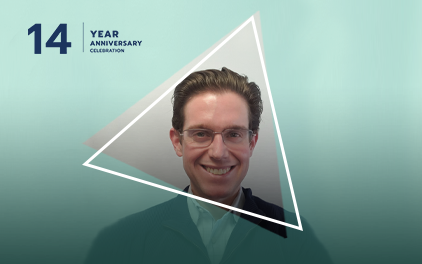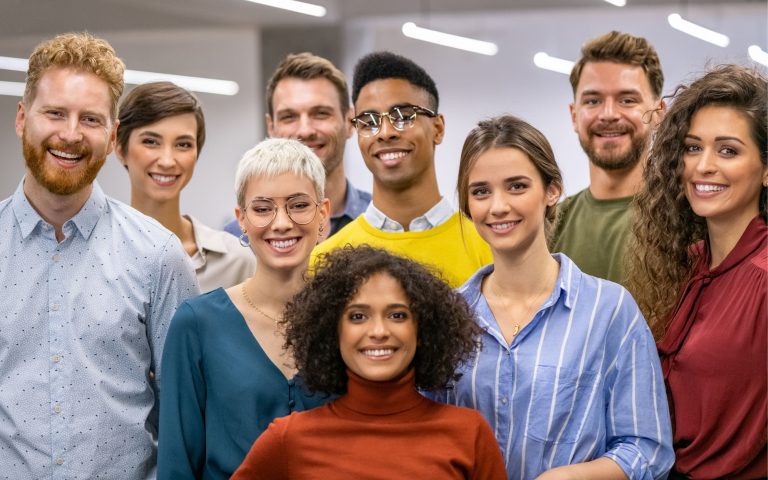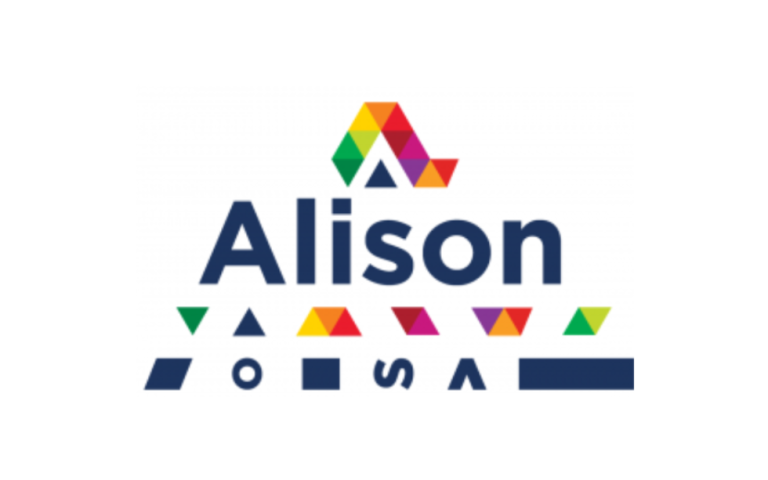Chuck Diemert is the Literacy Zone Coordinator with the Orleans/Niagara Board of Cooperative Educational Services (BOCES) in New York. Chuck has over ten years experience in the field of adult education and is a passionate advocate for educational accessibility. As part of his brief with BOCES, Chuck is the organizer of the Diversion Program which helps at-risk individuals stay out of the criminal justice system by gaining an education. Chuck has teamed with Alison in the past to pioneer the use of free online courses as a form of alternative sentencing and continues to champion the cause of education instead of incarceration through his work at BOCES. The Alison Blog was delighted to chat to Chuck as part of our 14 Year Celebration interview series.
Hi Chuck! What inspired you to choose a career in education?
Funny story! I didn’t choose a career in education, it chose me. After receiving a B.S. in Computer Engineering I began a career as an analyst, systems administrator, and project manager in the banking industry. While in between contracts with different banks I received a phone call from my mother who is an adult education program manager. She asked if I’d be willing to teach a computer class for a few weeks while they looked for an instructor to replace someone who had left the organization. I said no. She eventually wore me down (and threatened to never cook for me again) and I agreed to teach for a few weeks. That was almost 13 years ago.
I think what struck me initially was the humanity involved. I was used to dealing with data, networks, and engineers. There wasn’t much emotion in my previous roles. Coming into education, especially adult education, was a bit of a culture shock. Helping people with situations I could hardly imagine were real, having them find success, and then come back to thank me for my help was something I hadn’t really experienced to that point. I suppose I found a passion for helping people and my “few week” stint as a computer teacher has turned into a life-long mission.
What has been your proudest achievement in the education sector?
This is a tough question to answer. I’ve been involved in some interesting projects over the years. From the bigger picture perspective, I would say working with the New York State Department of Education to lower the age of eligibility for one of our online High School Equivalency pathways, thus making the program more accessible for students who are profoundly struggling with traditional school. That being said, I have so many stories of people I’ve had the honor of working with that have overcome impossible odds in life. My ability to play a small part in helping them achieve their goals is a truly overwhelming experience.
What has been the most important development you’ve witnessed in education in your professional lifetime?
Not to hit the nail on the head but technology, the internet, and the accessibility those things allow for. In many ways the methods with which we deliver education haven’t changed in centuries. Put students in a room with a teacher. Have that teacher explain a concept. Repeat. With increased accessibility to online resources, along with new smartboard technology, teachers have a never ending catalog of resources to help them make lessons more interesting, relatable, and engaging for students. In an age where attention spans seem to be getting shorter by the day, teachers are having to find more ways to keep student engagement up, and the tools given to them by technology are the solution.
Why is free education so important in addressing global inequality?
The ability to access quality education shouldn’t be limited by your financial situation. But if you live in a region without a reliable public education system you are left in a seemingly impossible situation if you are hoping to grow beyond the confines of your community. If we as a society have the resources to extend access to education to those that don’t currently have that advantage, I believe it is our responsibility to help close the gap.
Why do you think that online learning has been such a game changer when it comes to democratising education?
I think it comes down to cost. Once upon a time the only way to learn was to go to where the books and teachers were and those institutions cost a lot of money to maintain and attend, particularly if a person had to travel a great distance to do so. With ever increasing internet access, the need for brick and mortar establishments is constantly shrinking. A child in even the most remote region that has a cell phone can access all the same materials as a student at a prestigious university. While accreditation remains a hurdle, the availability of the information itself is becoming greater every day.
What in your opinion is the most pressing educational issue globally?
I’m afraid I’m going back to the well too many times but it’s all about accessibility. Even where I am in Western New York State, there are so many people that due to their circumstances can’t reasonably access education. Whether it is lack of transportation, lack of adequate child care, or a work schedule that doesn’t allow someone to engage with educational programming, the result is the same. There are people that want to take ownership of their future through education but simply can’t. The growth of online learning tools and resources has helped us immeasurably in our ability to bring education to the student rather than forcing the student to come to us.
If you were to recommend one online course to our Learners, what would it be and why?
It would be hard to narrow it down to one. But it would definitely be in the world of communication and Alison has so many fantastic courses in communication. Perhaps the Introduction to Communication Skills. Far too often, problems that arise, whether it be in school, at work, or at home, boil down to poor communication. The ability to clearly convey information seems to be a skill that many people struggle with. Strong communication skills are the foundation of success in any endeavor.
What advice would you give to Alison’s Learners who are using free online learning to empower themselves?
I’ll simply quote Coach Jimmy Valvano. “Don’t give up. Don’t ever give up.” Education is the key to all the locks. Never stop learning. Never stop growing. Never stop chasing your dreams.








